Premium Only Content
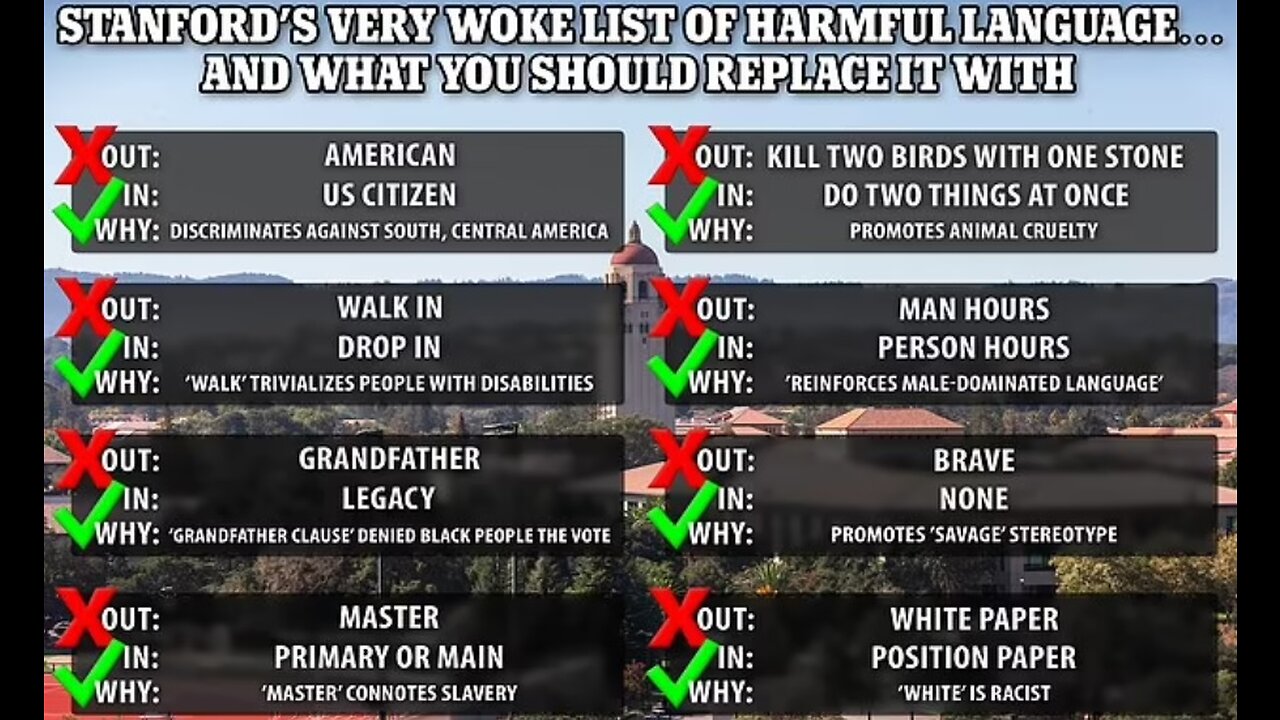
Frankenstein Of Political Wokeism Ideologies Updated Glossary of Woke Words-Terms
The Woke Agenda and Its Influence on Churches and Colleges Over the past several years, the term woke has been used to describe people who have been awakened to the injustices of society, particularly in regards to racism. Many Christians, committed to displaying God’s heart for the oppressed, have eagerly embraced the term.
The “woke movement,” however, has grown much larger than the early definition of the term. There is an agenda driving it that is anti-Christian and steeped in anti-God philosophies.
A working definition of wokism is impossible since even its strongest proponents apply the word in fluid settings. As defined by Merriam-Webster, to be woke means to be “aware of and actively attentive to important facts and issues (especially issues of racial and social justice).”1 In a broader, more practical sense, however, author Owen Strachan pointed out,
Wokeness is first and foremost a mindset and posture. The term itself means that one is “awake” to the true nature of the world when so many are asleep. In the most specific terms, this means one sees the comprehensive inequity of our social order and strives to highlight power structures in society that stem from racial privilege.2
Conversations and ideas with people who subscribe to woke philosophies have reached far beyond racism to involve any topics related to inequality including social justice, sexism, economic philosophies, and LGBTQ acceptance.
The way in which Christians address these issues relates directly to their view of Scripture. Second Timothy 3:16–17 asserts, “All scripture is given by inspiration of God, and is profitable for doctrine, for reproof, for correction, for instruction in righteousness: That the man of God may be perfect, throughly furnished unto all good works.”
A Christian with a high view of the accuracy, sufficiency, and authority of Scripture sees every social topic in light of the relative theological positions and practical instructions of God’s Word. A mature Christian is discerning of the underlying philosophies that drive these discussions and holds each up to Scripture.
Christians with a weak view of Scripture are more likely to allow the culture to both describe the problem and prescribe the solution. These Christians are more likely to suggest that basic Bible truths don’t apply in particular settings or that the biblical writers did not fully understand such modern issues. Often, Christians who don’t use the plainly-stated truths of Scripture as their compass will instead build subjective arguments based on “God’s heart for ” or how they believe Jesus would respond to various areas of need.
This undiscerning attitude is furthered by prominent Christian leaders who have jumped on the woke bandwagon. They may have been drifting from previously-held positions, but their recent statements clearly identify with the woke movement. For example,
Andy Stanley, pastor of a nondenominational, multi-campus megachurch in Atlanta, recently spoke positively of gay Christians who attend church as “having more faith than I do.”3
Rick Warren, the founding pastor of Saddleback Church, a Southern Baptist, multi-campus megachurch in Anaheim, recently ordained women as pastors and, more recently, defended this position as something more churches should do.4
A recent article pointed to three Christian leaders who have become outspoken on woke-related issues and commented, “The direction [Russell] Moore, [David] French, and [Beth] Moore are walking is not simply traditional evangelicalism, but a form of cultural accommodation dressed as convictional religion. The result is a religious respectability that promotes national unity, liberalism, and wokeism under the rhetorical guise of love for neighbor.”5
These unrelated examples point out the pervasiveness of woke philosophies in the church today.
Biblical leaders must develop the spiritual discernment to cut through the woke rhetoric to understand the philosophies behind current issues and allow Scripture to shape their response. I hope this article is an aid to that end.
In the next few pages, we will look at six woke-related issues, briefly describing each and bringing scriptural truths to bear. Additionally, I have included questions to help form discussions on each topic.
Most of these topics employ terms not directly used in Scripture (e.g. “social justice” or “intersectionality”). My desire here is not to split hairs over terms or to insinuate that everything touching a given term is ungodly. My goal is simply to hold up the underlying philosophies to Scripture and encourage you to stand on thoroughly-biblical convictions.
With that background, let’s get started.
Social Justice
Every Bible-believing Christian desires justice for the oppressed (Deuteronomy 24:14–21, Micah 6:8). But the social justice movement of today has more to do with insisting that categories of people, as opposed to individuals, have not received justice over time and thus should be treated differently today—even when there are not immediate instances of injustice in an individual’s life.
Additionally, some of the categories commonly cited for need in social justice are drawn from the whole or subsegments of LGBT identities, effectively equating different convictions regarding same-sex marriage or transgender inclusion with racism or other forms of discrimination over immutable characteristics, such as ethnicity. There is a real push through the social justice movement of today to undermine the basic definitions of male and female as well as the institution of marriage. Many who are driving the social justice agenda have openly-stated goals for the destruction of the nuclear family and the promotion of an LBGT agenda.
One example is from the leaders of the Black Lives Matter organization that came to prominence after the death of George Floyd.6 These leaders not only sought the demise of the nuclear family, but they openly shared their Marxist ideals.7 That woke-leaning Christians don’t see through to the anti-Christian agendas at play is deeply concerning.
An additional area of concern to the social justice movement is the way in which it conflates helping marginalized people with the sharing of the gospel. There is value to serving one’s community, and there is definitely value to reaching out to people who are oppressed or marginalized in a community. But we must not equate these types of care with sharing the gospel. The Bible is clear that faith for salvation comes through hearing the Word of God (Romans 10:17). Yet, Timothy Keller, a pastor and author seems to equate the two. (Interestingly, Keller, a Christian apologist holds that God may have created the world through the evolutionary process.8) In Keller’s church philosophy book Center Church, he writes, “Ministry in which Christians sacrificially serve the common good of the city is not only biblical but a necessary context for any convincing call to believe in Jesus.”9 In the same section he says that we cannot change culture simply “through lots of conversions.”10 This is simply not true. Scripture teaches that the truly converted become “a new creature” (2 Corinthians 5:17). As someone grows in their faith, everything about their life will change, including developing biblical viewpoints on moral and social issues. Those who insist that a focus on social justice must accompany the gospel actually do the gospel itself an injustice by seemingly suggesting that conversion is not the answer.
“Social justicians” often speak of redeeming the culture. Yet the Son of man came “to seek and to save” lost people (Luke 19:10). The “woke gospel” is another gospel, not the gospel of the New Testament. Instead of leading unsaved people to Christ, it leads people to social causes, some of which are anti-biblical. I have seen church buildings from Charlotte to San Fransisco displaying Black Lives Matter signs and rainbow flags, but those same churches are not sharing the gospel of Jesus Christ and calling sinners to repentance. I am reminded of Paul’s warning in Galatians 1:6, “I marvel that ye are so soon removed from him that called you into the grace of Christ unto another gospel.”
Biblically defined, the gospel is the death, burial, and resurrection of Christ for our sins (1 Corinthians 15:1–5). It is the satisfaction of the justice of God in the person of Christ paying for our sin, and it is the best news we can give to anyone who is not saved. We must not trivialize the actual gospel by hitching every social issue or injustice to it.
Social justice, similar to the “social gospel” of the previous generation, is really a repackaging of liberal theology being presented as a substitute for the Great Commission (Matthew 28:19–20).
Questions:
Why is it important to distinguish between the gospel and social issues?
Is salvation through Christ enough? Or does preaching the gospel require preaching social, racial, economic, etc. redemption as well?
In what ways would a Christian with a biblically-shaped worldview differ from a woke agenda on social justice?
Gender Distinction, Sexual Orientation, and Same-Sex Marriage
The front line of the anti-God agenda in the West today is being waged on the battleground of LGBT issues. There is clearly a concentrated effort in secular society to overturn the cultural norms concerning gender, sexuality, and marriage. From the state recognition of same-sex marriage, to the drag queen “story hours” taking place in public libraries,11 to the inclusion of biological males who identify as females in women’s sports,12 the LGBT movement is rolling full-steam ahead, even if it means crushing children, women, and society as a whole in its agenda.
In his book The Gathering Storm, Albert Mohler insightfully wrote,
The church of Jesus Christ faces an unprecedented challenge: the collision between it and a new sexual ethic, a collision between revelation and revolution. The evolution is a sexual one, and it is indeed a revolution, demanding a complete reordering of society and civilization.13
What is most surprising to me in all of this is that woke Christians are buying into it. In an effort to be accepting of people who struggle they have become affirming of sin. Some go so far as to deny that Scripture addresses these issues at all. They suggest that Jesus and Paul didn’t really understand or address the modern understandings of sexual orientation or transgenderism.14 In recently-surfaced comments, Pastor Andy Stanley called the clear passages on this issue “clobber passages.”15
But the Bible is clear here. In Genesis 1, God created human life in His image and designated male and female. In Genesis 2, He ordained marriage. In the New Testament, Jesus referred to both of these chapters as He said, “Have ye not read, that he which made them at the beginning made them male and female, And said, For this cause shall a man leave father and mother, and shall cleave to his wife: and they twain shall be one flesh?” (Matthew 19:4–5). Romans 1:24–28 condemns homosexuality in the clearest terms. In 1 Corinthians 6:9, Paul includes such acts in a list of sins. Furthermore, the Bible teaches that true conversion leads to turning away from sin. “He that saith, I know him, and keepeth not his commandments, is a liar, and the truth is not in him. But whoso keepeth his word, in him verily is the love of God perfected: hereby know we that we are in him” (1 John 2:4–5).
Yet, Christians who profess to believe and preach the Bible struggle to take a clear position on these issues.
For example, the senior associate pastor of First Baptist Orlando in Florida read in a public church service a list of the variety of people attending and serving in the church. In these comments he said, “We have transgender, LGBTQ, straight, single, married, divorced, and cohabitating people. These same people attend, listen, serve, grow, and give.”16 I can appreciate the desire to let unsaved people with sinful lives know that the gospel is for them, but to indicate that people openly practicing—and even identifying themselves according to—unrepentant sin should become or continue as faithful congregants is, according to 1 Corinthians 5, a position that is foreign to the New Testament.
Not only does First Baptist Orlando allow people living in open sexual sin to be members in good standing, however, it also allows these members to baptize new converts. Recent social media posts show Joe Mills, an openly gay man, currently “married” to another man, performing baptisms at First Baptist Church Orlando.17
The problem is not ambiguity in Scripture. The problem is that Bible-believing Christians are either too cowardly or too confused to clearly state what the Bible actually says. In an effort to not offend, woke-leaning Christians take a position that these topics call for a more “nuanced” view.18
Christians must study and come to firm convictions on what the Bible says about these issues. It is not unloving to say the truth to a world in need of a Savior.
Questions:
Do you believe Scripture is clear on its commands concerning sexual sins? Do you believe it addresses homosexuality and gender distinction clearly?
Should a church welcome members who are engaged in any sexual activity outside of marriage?
What is the most loving approach for a Christian in regards to someone who deals with same-sex attraction or gender dysphoria?
Egalitarianism and Women Being Ordained for Ministry
In the 1970s Gloria Steinem used the phrase “A woman needs a man like a fish needs a bicycle” to encapsulate and popularize the philosophy behind feminism. In an attempt to counter the unbiblical ideas embedded in feminism, biblical Christians coined the term complementarianism in the 1980s.19 The idea was to encapsulate the equality of men and women while differentiating their God-given roles in particular settings. The term was new, but the truths behind it are as old as Scripture.
The New Testament is clear on the intrinsic value and spiritual worth of women. Both men and women are created in the image of God (Genesis 1:27), and both are equal in Christ through salvation: “There is neither Jew nor Greek, there is neither bond nor free, there is neither male nor female: for ye are all one in Christ Jesus” (Galatians 3:28).
But the New Testament is also clear that God gave men and women different roles in marriage (1 Peter 3:7) and in the church. Regarding the church, the Bible gives straightforward directions in both 1 Timothy 2:12 and 1 Corinthians 14:35: “But I suffer not a woman to teach, nor to usurp authority over the man, but to be in silence.” “And if they will learn any thing, let them ask their husbands at home: for it is a shame for women to speak in the church.” My wife Terrie is an avid student of God’s Word and a capable Bible teacher. She has spoken to ladies over the years and has occasionally given a testimony of thanksgiving in our church assembly. But scripturally, neither she nor I believe it is a woman’s place to teach or preach the Word of God in a mixed congregation.
These views are not new and have been held by biblical Christians since the first century. In more recent years, however, woke or woke-leaning Christians are using the term egalitarian to describe a position that insists that men and women not only have equal value but also hold equal or interchangeable roles in all settings, including the home and church.
This egalitarian position has set the stage for woke pastors whose previous theological convictions were complimentarian to ordain women to pastoral roles in ministry.20 Rick Warren, who was one of the leaders of the “seeker-sensitive movement” of the ’90s, has been one of the most vocal to recently ordain women,21 even though this was not his position for his previous decades of ministry. After being disfellowshipped from the Southern Baptist Convention (SBC) over his new position, Warren was interviewed by Russell Moore, editor in chief of Christianity Today and previous president of the Ethics and Religious Liberty Commission of the Southern Baptist Convention. In the interview, Warren used poor exegesis to defend his culturally-popular views22 and stated he intends to seek to have the SBC decision overturned.23 But it’s not just Warren. Other woke-leaning pastors have been quite willing to virtue signal their egalitarian views by inviting their wives to preach on occasion and making little or no distinction between themselves and their wives as pastors.
Throughout the New Testament, we see women engaged in meaningful roles of ministry within the church. (See, for example, Acts 16:40, Acts 18:2, and Romans 16:1–2, 7.) When Christians cave to the accommodating stance of egalitarianism, they minimize the significant aspects of ministry God has given to women in the church.
Questions:
Do you believe Scripture differentiates between the roles of men and women in marriage and ministry?
Do you believe women can biblically hold the title of “pastor”?
Racism and Critical Race Theory
Closely tied to woke philosophies is an adherence to Critical Race Theory (CRT). To once again quote Merriam-Webster, CRT refers to “the idea that race is a sociological rather than biological designation, and that racism pervades society and is fostered and perpetuated by the legal system.”24
Racism is an ugly sin. Genesis 1:27 tells us that God made every person in His image, and Acts 17:25–26 affirms that we all have equal value in His sight. We are all of the same race—a fallen human race in need of a Savior (Romans 3:23–26). All of us come to God the same way—through Christ. Thus, the ground is level at the foot of the cross, and within the body of Christ, there is to be no favoritism (Colossians 3:11). The New Testament strongly condemns prejudice (James 2:8–9).
The premise of CRT, however, is that “the very concept of race was constructed in order to benefit whites at the expense of people of color.”25 A result of this approach is that “Even if a white person has never had a genuinely racist thought or he has repented of past racism, he is still a racist, white supremacist, because he is white and belongs to the majority.”26
This philosophy distorts the meaning of racism, redefining it from a sin of the heart to a result of one’s skin color. Furthermore, this philosophy makes reconciliation with other believers and unity within a church impossible because it suggests that white church members will always be guilty of racism, not to mention the fact that non-white members cannot be guilty of racism. This is not only ridiculous, but it is actually sinister. It is ripping a real sin apart from its moral definition and making it responsible for all the ills of society.
For a real-life example of how this plays out, here is a transcript from Matthew Hall, the former dean of Boyce College at the Southern Baptist Theological Seminary from 2016-2019, as well as the former provost and senior vice president of academic administration at the Southern Baptist Theological Seminary from 2019-2022, and also a former research fellow for the Ethics and Religious Liberty Commission from 2014-2022. In comments made as the guest of the Coffee and Cream podcast in 2018, Hall spoke to racial issues:
I am a racist, okay, so if that freaks you out, if you think the worst thing somebody can call you is a racist, then you’re not thinking biblically, because guess what, like, I’m gonna struggle with racism and white supremacy until the day I die and get my glorified body and in a completely renewed and sanctified mind. Because I am immersed in a culture where I benefit from racism all the time.27
A few years ago, a pastor prayed at Baylor University’s commencement exercises and denounced “a planet with too many straight, white men like me behind the steering wheel.”28 This type of virtue signaling is becoming more common even in evangelical circles.
No one—especially no Christian—should think less of or despairingly toward someone because of their ethnicity, skin color, or background. And no one—especially no Christian—should assume they know the condition of another’s heart based on his or her skin color.
Questions:
Does racism necessarily coincide with ethnicity or skin color?
How did the churches of the New Testament experience and address racism and prejudice? (See Acts 10, Acts 15, and James 2.) Is their approach sufficient today?
Intersectionality
The idea behind intersectionality is something like a CRT-based point system in which you receive more points for the greater number of minority groups to which you belong. Or you could think of it as a Venn diagram with circles representing various oppressed or minority groups overlapping, creating an “intersectional” center that represents the most highly-oppressed. For instance, according to intersectionality, a straight white male would be considered to belong to three groups with no oppression (straight, white, and male) whereas a lesbian African-American female would be a highly-oppressed person belonging to three groups that experience oppression.
Intersectionality divides the world into oppressors and victims. These divisions are built around group identities rather than personal experiences. And because there is no real way to right the wrongs of each group, intersectionality tends toward noisy virtue signaling without encouraging leaders to roll up their sleeves to discern and resolve underlying issues at play, preferring instead to perpetuate a sense of ongoing victimhood.
Additionally, intersectionality gives victim groups the moral high ground based simply on the oppression they have suffered. This obliterates right and wrong in the biblical or moral sense, replacing it with victimization or oppression.
One author described it this way:
In the worldview of ideological social justice, authority is conferred, not by wisdom, age, position, or experience—but by victim status. Claims of oppression and victimization based on a subjective “lived experience” must be believed without question. The more intersectional victim-boxes one can check, the greater the moral authority. The greater the authority, the greater the power.29
Concerning victimization, the Bible tells us that God personally cares for the oppressed (Psalm 9:9, 146:7). Jesus Himself “was oppressed, and he was afflicted” (Isaiah 53:7). In the Old Testament, God gave laws to Israel to prohibit taking advantage of vulnerable people such as foreigners, widows, fatherless, and the poor (Exodus 22:21–27). The Old Testament instructs, “Learn to do well; seek judgment, relieve the oppressed, judge the fatherless, plead for the widow” (Isaiah 1:17). Likewise, the New Testament commands Christians to care for those in need and specifically to “visit the fatherless and widows in their affliction” (James 1:27).
The contrast between intersectionality and a biblical approach to oppression is threefold: First, the categories for concern are specific to personal experience rather than to a broad group (e.g. being a widow versus being a woman or being fatherless versus having a particular skin color). Second, the biblical instructions are given to protect against actual crimes and to relieve actual suffering rather than to perpetuate labels of victimhood. And finally, Scripture—not categories of victimization—provides the moral authority for what is right or wrong.
There are real victims in our fallen world. There are countless hearts shattered by sin (their own or others) and suffering who are in need of God’s love. Biblical Christians care to relieve their suffering. That relief does not come through faulty philosophies of victimhood but through the forgiveness offered through the glorious gospel of Christ and the grace given through the precious promises of His Word. For those who are in bondage to sin, Christ promises, “And ye shall know the truth, and the truth shall make you free” (John 8:32). To those who know Christ, He promises overcoming power in a trouble-filled world: “These things I have spoken unto you, that in me ye might have peace. In the world ye shall have tribulation: but be of good cheer; I have overcome the world” (John 16:33).
Questions:
From a biblical standpoint, what concerns arise by including the LGBT community in groups of oppression? In what ways might people who struggle in these areas actually be oppressed, and what is a biblical approach to healing?
In what ways does intersectionality create victimhood out of sinful practices?
Do you believe the gospel and God’s Word are sufficient to address the needs of the oppressed?
Anti-Capitalism and Environmental, Social, and Corporate Governance (ESG)
For reasons that seem more philosophical than practical, those who are woke are against free-market capitalism. This hatred for capitalism and the free market is part of what has given rise to Environmental, Social, and Corporate Governance (ESG) in financial sectors. ESG investing firms, banks, and government policies require those with whom they do business to support environmental causes, affirm anti-christian social stances, and maintain hiring quotas that are LGBT affirming.
Not only are these philosophies unbiblical, but they are economically dangerous, as was seen in the recent collapse of the Silicon Valley Bank (SVB). It wasn’t until the aftermath of this bank’s collapse that customers learned how ESG partially led to its demise. Due to woke hiring practices, only one member of the board of directors held previous experience in investment banking.30 And while the bank was tanking, its head of risk assessment was launching and leading LGBTQ programs instead of righting the ship.31 Additionally, before its shutdown, the bank “dropped an ESG report that outlined the company’s focus on climate change.”32
The dangers of ESG, however, are larger than the failure of a single bank or company. There is an underlying agenda to use ESG policies to strong-arm ordinary citizens into woke causes. For instance, during Covid lockdowns, those who protested against government policies in Canada had their bank accounts frozen.33 Already some Christian institutions are finding a need to switch banks because their accounts have been canceled for unexplained reasons.34 I believe that in the future, companies and churches that don’t cooperate with ESG values will have their accounts canceled in greater number. It’s possible that the ESG agreements will become a “mark or brand” businesses will be forced to take if they will get contracts and rates amenable to their success.
Proponents of ESG dislike capitalism, claiming that it is systemically racist. If these claims were true, there would be good reason to look for another system. But these claims are not true, as author Owen Strachan points out: “Though woke leaders seek to replace the free market with state-controlled systems that will yield ‘equity’ as they see it, the free market is actually a tremendous engine for good for all peoples. While not impervious to manipulation…the free market has fundamentally changed the world, lifting people across the world out of serfdom into freedom.”35 He continues with helpful statistics and details explaining how racism, such as slavery in the United States, actually hurts rather than helps capitalism wherever it is or has been practiced.36
Scripture makes a direct connection between labor and provision: “For even when we were with you, this we commanded you, that if any would not work, neither should he eat” (2 Thessalonians 3:10). The Bible instructs us to labor so that we might have and be able to give to others: “Let him that stole steal no more: but rather let him labour, working with his hands the thing which is good, that he may have to give to him that needeth” (Ephesians 4:28). The New Testament strongly condemns men who do not provide for their household: “But if any provide not for his own, and specially for those of his own house, he hath denied the faith, and is worse than an infidel” (1 Timothy 5:8). Economic systems that reward diligent labor with personal ownership of the fruits of that labor are to be commended.
Christians who care for those in need should be discerning to see the woke hatred of capitalism for the pro-socialism agenda that is driving it. Although socialism promises to help the poor, it proposes this help based on other people’s money and by building a larger government that will ultimately crush the poor. In reality, socialism has devastated the people and the economy of every country where it has been thoroughly implemented.37
Questions:
How does Scripture inform our view of money and economies?
Every human system has weaknesses. What do you see as the greatest weaknesses in capitalism and socialism?
Conclusion
There is a real need in our day for biblical Christians to be alert to worldly philosophies that masquerade as truth. I am concerned for the future orthodoxy of Christians who seek influence and ideas from those who are swayed by woke ideas. The practice of churches that exemplify woke and social justice philosophies today reveal their consumption of the “philosophy and vain deceit” spoken of in Colossians 2:8: “Beware lest any man spoil you through philosophy and vain deceit, after the tradition of men, after the rudiments of the world, and not after Christ.”
John Adams, second president of the United States, pointed out, “It is the duty of the clergy to accommodate their discourses to the times, to preach against such sins as are most prevalent, and recommend such virtues as are most wanted.”38
Christian leaders today must be willing to clearly and unapologetically state what the Bible says. They must be willing to call sin what it is and must be clear in proclaiming the gospel through Jesus Christ.
Scripture commands us that we are to “earnestly contend for the faith which was once delivered unto the saints” (Jude 3). As I have attempted to point out in these pages, the modern woke agenda is significant to “the faith” because it undermines the biblical understanding of such central truths as sin, forgiveness, and the gospel itself.
If we are to make a difference in our world today, we must, like the apostle Paul, be willing to stand for truth under the stigma of the cross even when it seems strange to the world.
“For the preaching of the cross is to them that perish foolishness; but unto us which are saved it is the power of God” (1 Corinthians 1:18).
Updated Glossary of Woke Terms In preparation for this article I researched several actual glossaries of woke terms. My surprise wasn’t that I found so many to research, rather that the zeal of their collective efforts to fold, bend, staple and mutilate the language of common discourse has remained so resolute despite so much ridicule and parody over the past several years. When SNL, the very embodiment of woke culture, parodies woke culture, it may be time to bid adieu. Still, wokeness refuses to grow old (unlike the rest of us), and therefore requires constant renewal and maintenance (just like the rest of us).*
Admittedly, my modest contribution to the destruction of the language for transparently political reasons is late to the game, although the list below strays somewhat from the traditional glossary format: rather than simply reiterate the intended woke definition of each term or phrase, I define it by its actual Doublespeak counterpart. Please feel free to comment below on my attempts, or add your own…
Academia: the Wuhan Lab of lethal ideas.
Adulting: washing your dirty clothes instead of just ordering new clothes on Amazon.
Affirmative Action: systemic racism for profit.
Allyship: the more leisurely alternative to the Allyplane.
Anti-racism: systemic racism for profit.
Bae: just one letter shy of a real babe.
Binary: decidedly undecided.
BIPOC: gay or lesbian POC.
Birthing person: how mostly over-educated, white (il)liberal women allow a few men to objectify all women.
Black Lives Matter: the insistence that black lives matter despite all proof to the contrary.
Cancel culture: what the Left claims doesn’t exist until it happens to them.
Call-out culture: when your friends stand outside your window after school and scream for you to come out and play, then call you a wuss when your mom won’t let you.
Cis-normative: mangled attempt to simplify not-LGBTTQQIAAP.
Consensual non-monogamy: just wait till your wife finds out!
Critical Race Theory: systemic racism for profit.
Cultural appropriation: unauthorized flattery.
Democracy: what the ruling elite must first destroy in order to save.
DIE: the imperative delivered by the Diversity, Inclusion and Equity industry to the Bill of Rights.
Diversity: where everyone looks different but thinks the same.
Education: indoctrination.
Entitlements: table scraps left over after the ruling elite gorge themselves.
Femtech: niche products relentlessly marketed to more than 50% percent of the population.
Follow the science: a religious call to action invoked when actual science refuses to cooperate.
Free speech: only if you agree with me.
Gender affirming care: gentler, kinder castration.
Gender fluid: what your gender studies professor spits up when she chokes on her own pronouns.
Great Reset: what you get when you press Hillary Clinton’s big red reset button.
Green New Deal: what results when you combine the Yellow and Blue New Deals.
Identity politics…
when applied to race: genetic determinism.
when applied to gender: genetic indeterminism.
Implicit bias: bias no one knows they have until a racist is paid to tell them they have it.
Inclusive: all expenses paid (sorry, couldn’t resist the temptation).
Indoctrination: education.
Information: the weapon most preferred and deployed by the ruling elite in the class war against freedom; more specifically…
(Dis)information: what the ruling elite don’t want you to know.
(Mis)information: what the ruling elite want you to know
(Mal)information: what the ruling elite require you to know.
Intersectionality: where everyone comes together — whether they like it or not —but no one wants to live.
Journalist: the spy who came in from the cold.
Justice: a common good that requires a modifier to convert it into a common evil. For instance…
Green justice: class warfare posing as mob justice reimagined.
Racial justice: class warfare posing as mob justice reimagined.
Social justice: class warfare posing as mob justice reimagined.
Trans-justice: class warfare posing as mob justice reimagined.
LatinX: how no Hispanic person wants to be described.
LGBTQ-inclusive: a modifier invoked only when you need to exclude everything else.
LGBTTQQIAAP+: mangled attempt to define non-cis-normative.
Marginalization: when margin notes become the main story.
Micro-aggression: too small to see but powerful enough to tyrannize all of academia, most Fortune 100 corporations and the entire Democratic Party.
Minor-attracted person: pedophile.
Misgender: who sits next to Mr. Gender?
Mostly peaceful: exceedingly violent.
Non-binary: everything else.
Pansexual: someone with the hindquarters, legs, and horns of a goat — and an Ivy League diploma.
Period Dignity Officer: making a bloody mess out of everything.
Pronoun: a formerly amateur noun.
Recession: a dent on the rear bumper of an EV.
Reimagine: what ideologues do when they want to destroy something.
Religion: politicized science.
Safe space: where the elite children of elite parents go to avoid free speech for only $80,000 a year.
Science: politicized religion.
Systemic racism: the DNA of the Democratic Party.
Transformative: massive systemic modification designed to satisfy only the smallest statistical constituency.
Transitioning: the process of being red-pilled after the mugging.
Transgender: the best reason to buy a whole new wardrobe.
Transphobia: fear of the trans mob.
Trigger warning: what mostly peaceful protesters issue right before they pull the trigger.
Two-spirit: one spirit plus one spirit.
Virtue signal: making a left turn into heavy traffic sound like a good idea.
White fragility: systemic racism for profit.
White privilege: character flaw that infects mostly over-educated, elite white (il)liberals when they try to convert non-racist working class whites into racist working class whites.
White rage: what elite white (il)liberals and five-star generals are full of when they describe working class whites.
White supremacy: what remains when the last black man has no rhythm and can’t jump.
Wokeness: the missionary religion of classism preached by mostly white, mostly affluent, mostly self-loathing (il)liberal secularists.
* The above terms and phrases are subject to change by tomorrow morning.
-
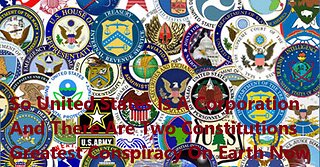 5:19
5:19
What If Everything You Were Taught Was A Lie?
10 days agoUnited States Is A Corporation And There Are Two Constitutions Greatest Conspiracy On Earth
3.37K7 -
![[LIVE] Bully | GTA: Vice City | First Playthrough | 8 | Rampage and The Spirit of The Season](https://1a-1791.com/video/fwe1/85/s8/1/W/e/n/4/Wen4x.0kob-small-LIVE-Bully-GTA-Vice-City-Fi.jpg) 3:15:35
3:15:35
Joke65
9 hours ago[LIVE] Bully | GTA: Vice City | First Playthrough | 8 | Rampage and The Spirit of The Season
44K -
 3:27:04
3:27:04
Laura Loomer
11 hours agoEP103: Dems Promote Violent Anti-Trump Protests Nationwide
57.9K16 -
 6:50:08
6:50:08
Fairy Mysterious Adventures
9 hours agoStardew with the Rumble crew #16
44.4K2 -
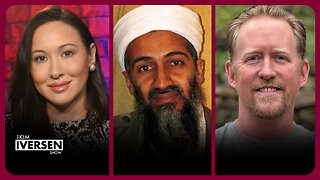 1:28:42
1:28:42
Kim Iversen
14 hours agoThe War on Terror Was a Scam? Is Osama Bin Laden Really Dead? SEAL Who Killed Him Breaks It Down.
82.8K158 -
 1:09:44
1:09:44
Slightly Offensive
11 hours ago $15.76 earnedALMOST SERIOUS: How Mass Legal Immigration DESTROYED Australia | Guest: Maria Zeee
83.7K31 -
 2:38:38
2:38:38
TimcastIRL
11 hours agoTrump Orders DOJ To FIRE EVERY Biden Attorney, Calls For CLEAN HOUSE w/Siaka Massaquoi | Timcast IRL
158K104 -
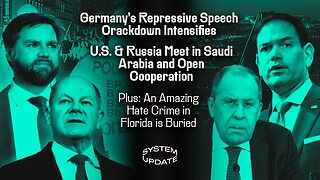 1:29:31
1:29:31
Glenn Greenwald
14 hours agoGermany's Repressive Speech Crackdown Intensifies; U.S. & Russia Meet in Saudi Arabia and Open Cooperation; Plus: An Amazing Hate Crime in Florida is Buried | SYSTEM UPDATE #408
120K78 -
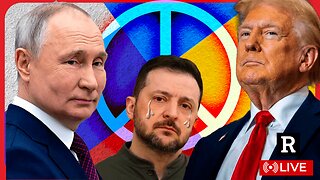 1:30:48
1:30:48
Redacted News
15 hours agoBREAKING! TRUMP AND PUTIN NEARING PEACE BUT EUROPEAN WARMONGERS TRYING TO STOP IT | REDACTED
212K273 -
 52:40
52:40
Candace Show Podcast
15 hours agoSaturday Night Lively: What Were They Thinking? | Candace Ep 148
193K166